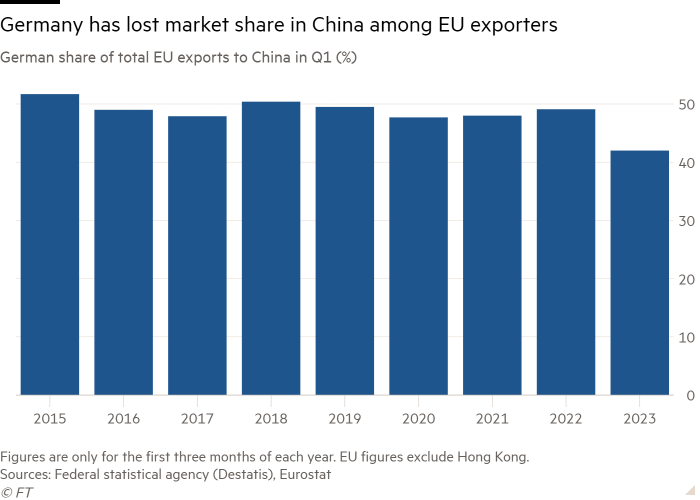[ad_1]
This article is an on-site version of our FirstFT newsletter. Sign up to our Asia, Europe/Africa or Americas edition to get it sent straight to your inbox every weekday morning
Good morning. Microsoft has warned that a state-sponsored Chinese hacking group has compromised “critical” infrastructure in the US in order to disrupt communications between the country and Asia in the event of a crisis.
In a rare announcement about a systems breach, the US technology group said the hackers, codenamed “Volt Typhoon”, have operated since mid-2021. They have been able to infiltrate organisations across industries ranging from communications and transportation to education and government by exploiting a popular cyber security platform called FortiGuard, Microsoft said.
The hacking group’s actions had focused on gathering intelligence and espionage, rather than causing immediate disruption, according to Microsoft. But John Hultquist, chief analyst at Mandiant Intelligence — a cyber defence service owned by Google — said the Volt Typhoon hack was “aggressive and potentially dangerous”. Read the full story here.
And here’s what else I’m watching today:
-
Turkey interest rate decision: Economists expect Turkish policymakers to hold the policy rate steady today, according to a recent poll. (Reuters)
-
Eurasian Economic Forum: A meeting of the Supreme Eurasian Economic Council takes place today. Russian president Vladimir Putin is expected to attend.
-
Annual general meetings: Two notable annual meetings will be held today. At McDonald’s, two of Europe’s largest asset managers will press the food chain to reduce antibiotic usage. And Illumina’s chair and CEO will be up for a vote.
Five more top stories
1. US chipmaker Nvidia issued a revenue forecast far ahead of Wall Street expectations, prompting a surge in its stock price in after-market trading. Soaring demand for the chips needed to train the latest wave of generative AI systems such as ChatGPT has allowed Nvidia to confirm its position as the biggest beneficiary of the AI race.
-
Interview: Ahead of Nvidia’s earnings report, the company’s chief executive warned that the US tech industry is at risk of “enormous damage” from the US-China battle over chips. Read the full interview.
2. Canberra has referred the PwC tax leaks scandal to Australia’s federal police, asking the force to consider opening a criminal investigation. Emails released this month showed how PwC drummed up business from multinational clients using confidential government information.
3. Republican negotiators will return to the White House to “try to finish out the negotiations” on the debt ceiling, Kevin McCarthy has said, although he warned the two sides were “still far apart” on a number of issues. The Speaker of the House’s remarks come with just over one week to go until a crucial June 1 deadline.
4. Samsung faces the threat of strike action amid a union campaign for higher wages. The South Korean company’s union will ballot members on a strike unless chair Lee Jae-yong comes to the table for negotiations. For Samsung, previously known for its aggressive stance towards organised labour, this is new territory — and it comes a particularly sensitive time.
5. UK inflation dropped to 8.7 per cent in April, a smaller decline than the Bank of England had forecast — bolstering expectations of further interest rate increases and leading to a bond market sell-off. Read more on today’s inflation announcement.
-
US inflation: The need to further lift US interest rates to control inflation is “less certain” as economic risks have increased, according to the latest Federal Reserve minutes.
The Big Read

Periods of inflation have often boosted the price of gold and this time it is not just being bought by elites — central banks worried about geopolitical risk purchased a record-high 1,079 tonnes of bullion last year. How long will the new gold boom last?
We’re also reading . . .
Chart of the day

A double-digit drop in German exports to China has rattled Europe’s biggest economy, triggering debate over why its vast manufacturing sector has fallen behind rivals. It also reveals a unique set of challenges for Europe’s industrial powerhouse.
Take a break from the news
The Bulgarian writer Georgi Gospodinov has won this year’s International Booker Prize for his novel Time Shelter, a hard-hitting comedy set in present-day Europe that explores political populism and the way nostalgia can be exploited to create a confected past.

Additional contributions by Gordon Smith and Tee Zhuo
[ad_2]
Source link

